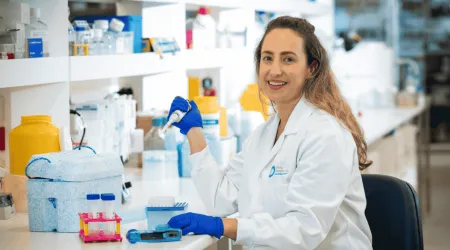Top Ten Questions to Ask Your Doctor: When You’re Newly Diagnosed with Colorectal Cancer
Being diagnosed with colorectal cancer can leave you very frightened, overwhelmed, and anxious. Your mind may feel like it’s racing in a million different directions as you wonder what lies ahead and how you will manage it all.
Most of all, you will have many questions about your diagnosis, prognosis, and treatment. The list below is a good way to organize your thoughts when talking to your provider.
,
Top Ten Questions to Ask Your Doctor: When You’re Newly Diagnosed with Colorectal Cancer
- What type of cancer do I have?
- What stage is my cancer? [link to this term in glossary]
- What is my prognosis? [link to this term in glossary]
- Will I need more surgery?
- What are the treatment options?
- Which treatment options do you believe are the best ones for me – and why?
- What will be the side effects of my treatment?
- How will my treatment affect my ability to work and do other activities?
- Are there clinical trials [link to this term in glossary] that I should consider?
- If I would like a second opinion, how do I go about it?
More tips: Remember to take a pen and notebook to your appointments so that you can take notes. It’s also a good idea to have a trusted friend or family member with you during your doctor visits. This not only gives you great emotional support but also provides another set of ears to listen to what your doctor says.
Top resources

Where breakthroughs begin: Project Cure CRC spotlight on Dr. Lisa Mielke
hrough Project Cure CRC, the Alliance is fueling bold, early-stage research with the potential to transform colorectal cancer treatment. Dr. Lisa Mielke’s groundbreaking work explores how the gut’s immune system and nerve signaling influence cancer growth—opening the door to new therapeutic approaches, including repurposed existing drugs. This is what’s possible when promising ideas get the support they need to move forward.

John E.: Biomarker testing uncovered a pivotal treatment option
After a grim prognosis, biomarker testing revealed a targeted treatment option for John E. Learn how knowing your biomarkers can change what’s possible.

"Clinical trials gave us time": A daughter’s tribute to her mother’s courage
When Kate Shin’s mother faced rectal cancer, clinical trials gave them precious time together. Now, Kate shares her story to encourage access to screening and innovative care, including clinical trials.





